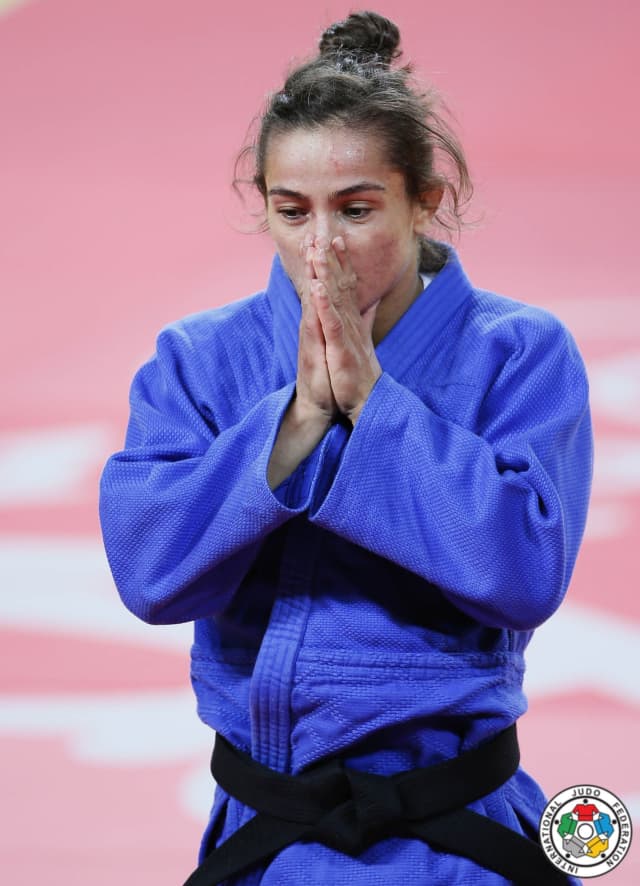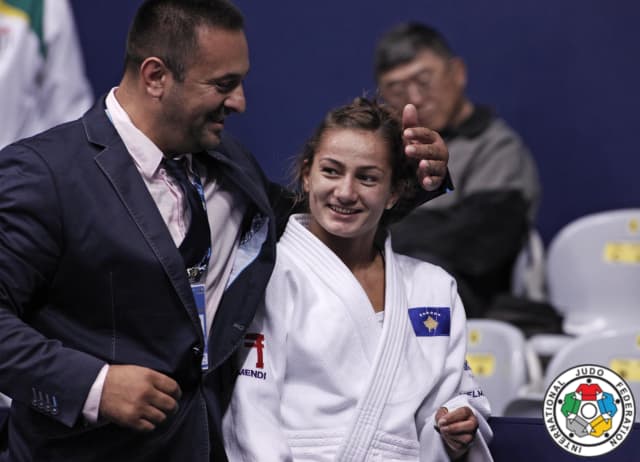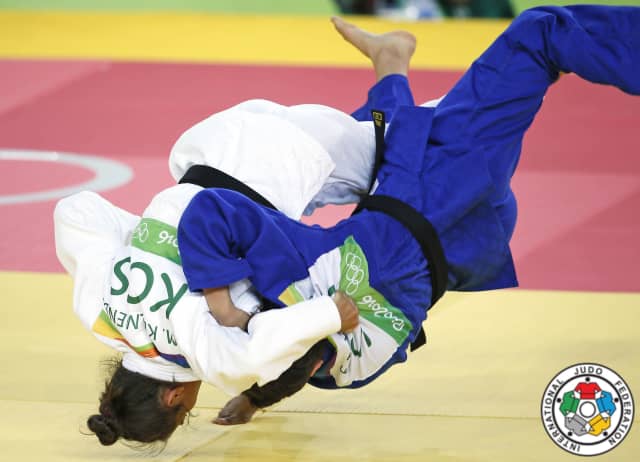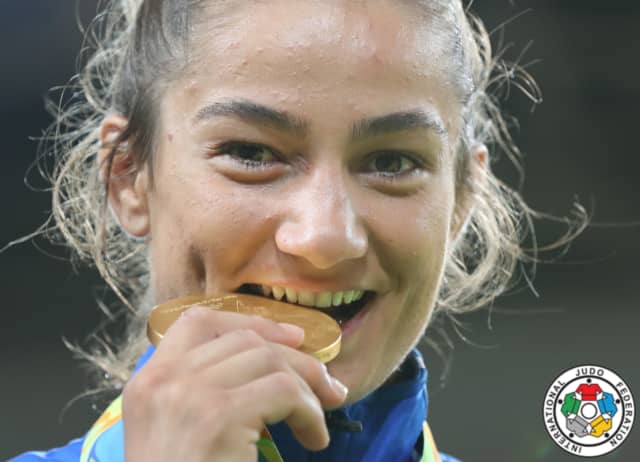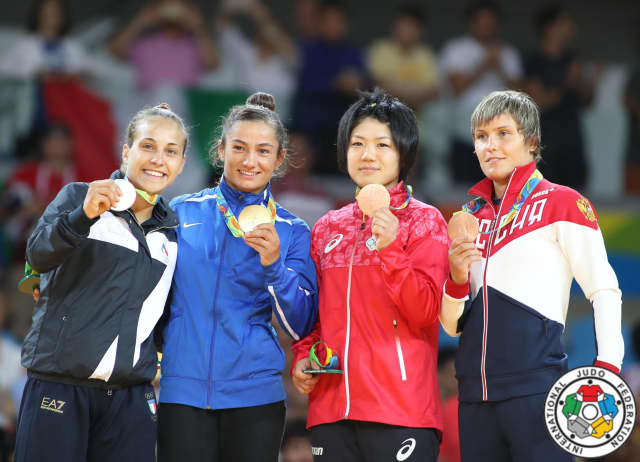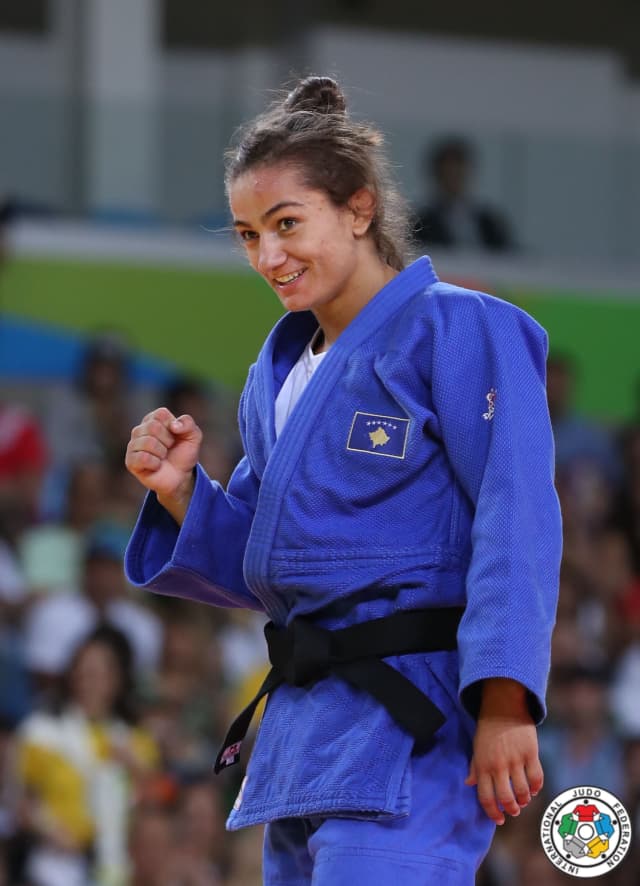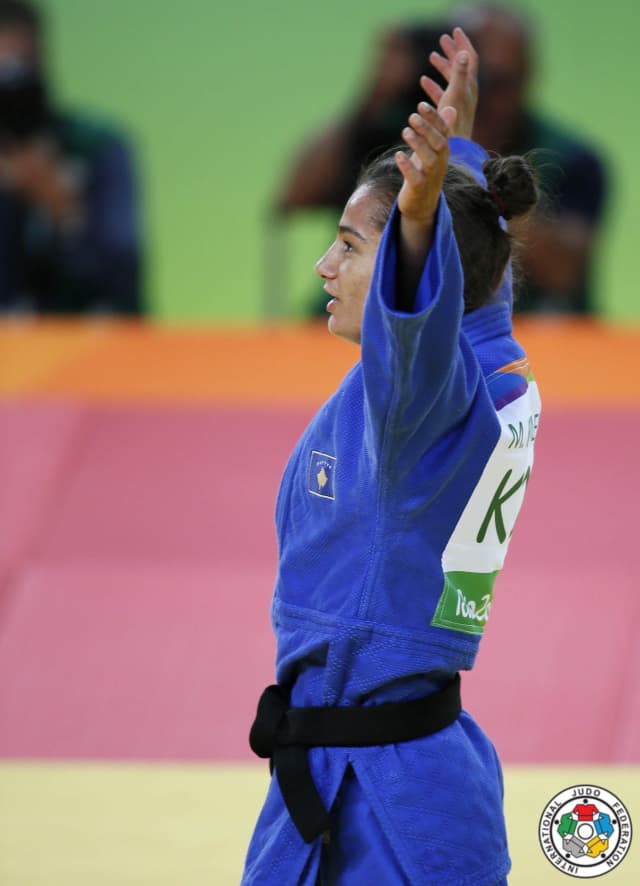We introduced the statistics, the almost impossible feat and the question in our first article in the series, which can be found here:
https://www.ijf.org/news/show/151-olympic-champions-tokyo-to-tokyo
A reminder of the question:
It could be said that to be in the company of an Olympic judo champion is to be presented with someone whom has reached an absolute pinnacle, a ceiling which cannot be surpassed; there is nowhere further to ascend in the world of sport. We often find Olympic champions speaking with freedom and certainty, unafraid to share an opinion, speaking of their lives and paths with confidence. For many we feel there is peace, and that can be magnetic and inspiring.
So the question is, did they become Olympic champion because of that character or did they become that person having won the Olympic gold medal?
“I think I became Olympic champion because of my character. It sounds crazy and maybe even stupid but since the age of 12 I knew I was going to be the best in the world. At that time Kosovo was not even a country. I worked really hard always and even when I was 15, a cadet, I was fighting seniors."
"In 2009 I became junior world and junior European champion. The Europeans in Armenia was my first time fighting for Kosovo as a country and since then I told myself ‘I’m the best in the world,’ I just needed to show it. It took another four years to take the medal at seniors but in my head I was the best.
In 2013, at the Rio Worlds, I became senior world champion and then my goal moved on and was not just to be best -52kg athlete but to be the best woman in the world from any category. I knew I trained like crazy and probably more than anyone else."
"I won the worlds and Europeans and everything else but in 2015 I had a herniated disc in my neck and I was told by the doctor that I had to stop or I would be paralysed. My left arm was already blocked and so I had to decide to stop or to continue and risk everything.
I chose to continue even if there might be catastrophic consequences; I needed to continue. Physically I was in a bad place but mentally I was still so strong. With my left arm not even at 50% I knew I had my other arm and I knew the Olympic gold medal was there for me to take it."
"At the Olympics in Tokyo I was in such good physical shape but not at all mentally, things were completely reversed from the previous cycle. With my condition in 2016 I knew I could be Olympic champion even with only my right arm!"
"Since I was a child, I had a winning mentality. I thought that if I can’t throw them I will kick them or hold them, figuratively. My coach also helped me to be like this. He helped me believe in my ability all the way through from when I was little. I was 8 when I started judo, in Peja. I think a coach can make you a winner in your head or leave you floundering; they are very important for an athlete’s mentality. For me it was the most important thing.
To come from where I came from and be that kind of champion is something special. Maybe when I was really young I was just training and competing and hadn’t formulated those big goals but my mentality was already there. We had no place in the EJU, no IOC place, no country. How was it possible to progress? Kuka always said there was time and we would do it. Clearly, he was right!"
"When I started to get results, this future was just a dream but now the country has a flag and funding and a pathway. I would not have forgiven myself for not being the first. I sacrificed a lot to represent Kosovo at the Olympic Games and it was a huge moment, not just for sport in Kosovo but for the country as a whole."
"After Rio I got tired mentally and physically and every day after that got harder. There were too many injuries. My career after Rio came away from sport and was so much broader. There was a lot of pressure and I was always in pain and I was stressed; I was so done. I didn’t want to disappoint anyone at the Tokyo Games and I thought maybe the long experience I had would work for me but practically I believe if we aren’t good in our head, nothing can work.
Now I am 32. You know I didn’t have family holidays from the age of 12 or 13. Even after the worlds I trained again after only one week. I didn’t enjoy my career so much and I look back and think that I should have enjoyed it more. I was given a month after the Olympics but after two weeks I came back, my choice to just keep training. If training was supposed to be at 10am, I was already starting at 8:30. I overused my body.
If the choice was presented to me, I would go back and do it all again. I enjoyed that feeling of not being able to breathe. It’s hard to train but even harder to lose. I didn’t want to ever have that feeling."
"For the young it’s important, every time I went to competitions I had too much stress. It’s normal to have that stress, those emotions and adrenaline and you have to be stronger than your feelings in order to manage it all. We all have stress, even Olympic champions. I look back and see how confident I looked but before fighting Nakamura at the Olympics, for example, I was so stressed. From the outside I think I looked like a robot but inside we all have those feelings. Perhaps it was my winning mentality that always carried me through. It’s who I was, it’s who I still am.”

